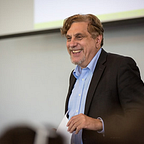Afterschool Ignored in the Democratic Debates
That is a mistake.
The election season is upon us, with the last Democratic primary debate of the year taking place tonight. As a researcher in the field of education, I pay close attention to the ways education and youth development are discussed and framed on large policy platforms. This year, I have noticed one area consistently neglected in these high-profile discussions: educational settings that care for school-aged children and adolescents beyond the school day. These spaces are often referred to as afterschool programs, out-of-school time, summer experiences, or extended education.
This year, the domestic topics of the Democratic debates have largely focused on health care, immigration, trade, and gun violence with education in the periphery. When education came up in the first five debates, the most discussed issues were universal pre-K and tuition-free public colleges and universities. Some candidates also argued for raising teacher salaries and increasing funding for low-income students and schools. But every family in this country has to figure out what to do when school is out and how to pay for high quality and safe environments for learning and care.
Going beyond what’s covered in the debates, some Democratic candidates have more detailed platforms that include expanded learning opportunities. For example, Bernie Sanders has proposed spending $5 billion annually to expand summer and afterschool programs and youth centers in particular. Elizabeth Warren’s platform includes investing $100 billion over ten years to restore and implement in-school and out-of-school programs. Amy Klobuchar also has had a record of speaking up in favor of increasing access to afterschool programs and community hubs. On the other side of the political aisle, President Trump’s campaign platform does not specifically mention afterschool programming, but his administration did attempt to cut the only federal funding stream dedicated to afterschool and summer programs (21st Century Community Learning Centers) on three occasions.
I believe that out-of-school time should be treated with the same attention as current education hot topics like pre-K and college tuition costs. Often times, when politicians debate over resource allocation or ways to increase quality of education, they focus on the start and end of a child’s educational journey (i.e. universal pre-school and college access). This approach often overlooks the many opportunities that could be improved upon in elementary, middle, and high school years. For example, the three months of vacation between each school year can lead to “summer slide,” which denotes the loss of academic gains during the summer months when young people are often less engaged with academic material. Also, the opportunity divide during the summer between children who grow up in poverty and those who have affluent parents is enormous.
Researchers who have studied the impacts of expanded opportunities for children and youth have found them not only tie in with improved academic performance and outcomes, but also reduce risky behaviors and juvenile crime, increase positive socio-emotional development, and lead youth to follow healthier living habits. Afterschool programs also allow working parents to be more likely to keep their jobs while their children are occupied, and leads to peace of mind knowing that their children are in a safe, supervised place. Other research has found that participation in high-quality out-of-school programs allow low-income and minority students to reduce the achievement gap within school settings. These factors all make out-of-school programming a smart investment for politicians to talk about, as the benefits radiate far beyond the scope of individual well-being. There are positive systemic results that voters will reward.
Candidates in any party would be well-served by putting more emphasis on this topic. Unlike debates surrounding healthcare or gun regulations, it is not a matter of taking away or replacing something, but rather about the expansion and supplementation of new programs. There are more than 30 million families with children under the age of 18 in America, with the majority being employed. The work day does not correspond with the school day and that is a very serious matter. Many of these voters are in essential primary and swing states and know whether a leader takes their situation seriously. Ultimately, this is a low-risk, high-yield topic, and it’s time to give it the deserved place on the debate floor. If you don’t discuss your plan, you will be seen as being out of touch with a very significant need of every family in our nation.
Originally published at https://www.psychologytoday.com on December 19, 2019.
